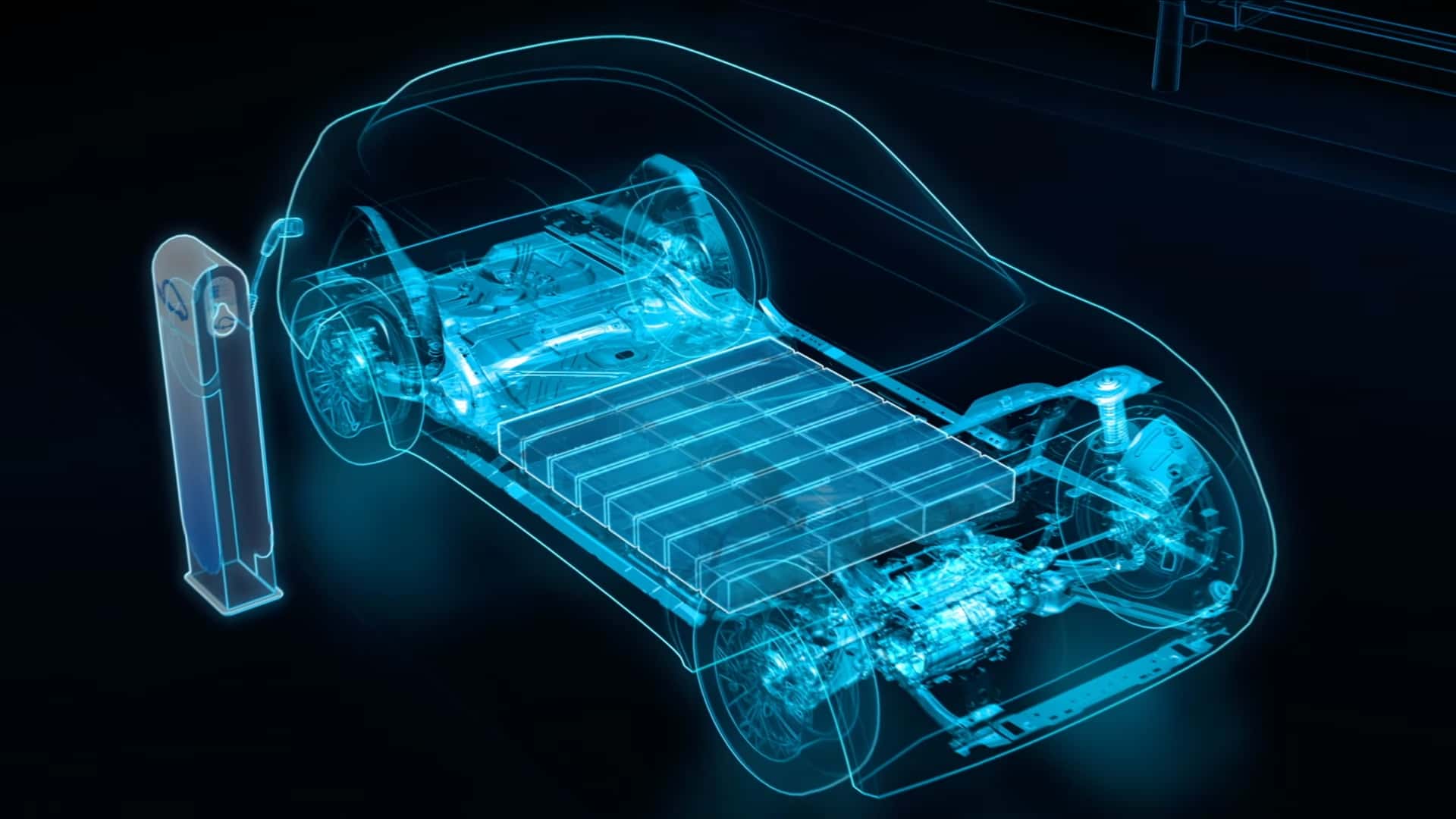Stellantis has revealed a prototype electric vehicle battery, which integrates the inverter and charger functions within the modules. This application frees space in the EV and makes the battery more efficient in terms of cost and range, the group said in a press release.
Stellantis, along with TotalEnergies-owned battery solutions company Saft, worked with France’s National Centre For Scientific Research (CNRS) for four years to design, model, and simulate this technology.
The collaborative research project is called the Intelligent Battery Integrated System (IBIS) – its prototype has been operational since the summer of 2022. The group says several patents have been filed for IBIS, which marks a major transition from conventional electrical energy conversion systems.
An electronic conversion board performs the functions of the power inverter and charger and is positioned close to the lithium-ion battery cells, as per the statement. An advanced control system then facilitates the alternating current to travel from the battery directly to the traction motors.
The brand has demonstrated in the video above how AC power can go directly to the battery during external charging. The stored energy, housed in modules independent from each other, could then power the electric motors. The group claims that this technology might make EVs more affordable, efficient, reliable and possibly increase longevity.
The next step for the collaboration is to develop a fully functional prototype vehicle, which will be tested by Stellantis on its existing tracks and public roads. The IBIS team’s intention is to incorporate the technology in Stellantis EVs before the end of the decade.
Stellantis owns brands like Jeep, Ram, Chrysler, Fiat, and Maserati among several others. It plans to launch 75 BEVs by the end of the decade under its Dare Forward 2030 strategy, which includes unveiling a sub-$27,000 ($25,000 euros) Citroen small electric hatchback later this year for the European market.
Automakers and companies specializing in battery technologies are racing to increase range, rationalize costs and improve space and efficiency. Last week, Chinese carmaker Nio released a document revealing a 150-kilowatt-hour solid-state battery with a claimed range of 577 miles.
Toyota, the world’s top-selling carmaker in 2022, has claimed to have achieved a breakthrough in solid-state batteries, which can deliver up to 745 miles of range. Although note that these claims will vary after future vehicles, if and when equipped with these technologies, go through test cycles like EPA, WLTC, and more.

Thank you for this enlightening article. It was very enlightening , and delivered a lot of useful information. Should you be looking to learn more about the world of viral real estate SEO, don’t hesitate to explore https://www.elevenviral.com for additional insights.
I’m truly impressed with your deep insights and stellar ability to convey information. The knowledge you share is evident in every piece you write. It’s obvious that you invest a great deal of effort into researching your topics, and this effort does not go unnoticed. Thanks for providing this valuable knowledge. Continue the excellent job! https://www.elevenviral.com
Thanks for the comprehensive overview. Very helpful!
lasuna where to buy – purchase lasuna sale buy generic himcolin for sale
I love how you addressed this issue. Very insightful!
buy besivance paypal – purchase sildamax generic brand sildamax
probalan cheap – buy probalan pills order tegretol 200mg generic
celebrex price – urispas pills buy indomethacin generic
buy generic mebeverine over the counter – colospa 135 mg price pletal 100mg price
voltaren price – buy diclofenac paypal buy aspirin 75mg generic
purchase rumalaya pill – order endep 10mg for sale buy elavil 10mg pill
purchase pyridostigmine generic – order azathioprine without prescription imuran generic
diclofenac order – order imdur 40mg generic nimodipine sale
baclofen 25mg us – baclofen 10mg for sale buy piroxicam 20mg generic
order meloxicam online – oral mobic 15mg toradol 10mg usa
order periactin 4mg – zanaflex without prescription tizanidine 2mg canada
purchase trihexyphenidyl without prescription – trihexyphenidyl drug purchase diclofenac gel sale
buy cefdinir 300mg generic – buy cheap cleocin purchase cleocin generic
order accutane generic – deltasone 5mg uk order generic deltasone 20mg
prednisone 40mg brand – buy omnacortil pill buy elimite cream
permethrin where to buy – benzac us retin cream us
buy betamethasone 20 gm creams – buy differin paypal purchase benoquin online cheap
buy flagyl 400mg online – cenforce pills buy generic cenforce over the counter
augmentin 625mg tablet – purchase levothyroxine pill buy levothroid sale
order cleocin 300mg generic – buy indocin no prescription buy indomethacin without a prescription
buy generic cozaar – cephalexin 125mg pill keflex without prescription
purchase crotamiton – mupirocin tablet aczone order online
buy provigil without prescription – meloset 3 mg drug meloset tablet
order bupropion 150 mg – buy shuddha guggulu paypal buy shuddha guggulu pills
order capecitabine 500mg online – buy naprosyn pills generic danocrine 100 mg
prometrium ca – clomiphene price cheap clomiphene sale
alendronate 35mg usa – purchase alendronate generic buy generic medroxyprogesterone 10mg
cheap aygestin 5mg – buy generic lumigan yasmin tablets
order generic cabergoline 0.25mg – premarin 600 mg pills buy generic alesse over the counter
order estradiol 1mg generic – ginette 35 online buy anastrozole pills
プレドニン処方 – г‚ўг‚ёг‚№гѓгѓћг‚¤г‚·гѓі еЂ‹дєєијёе…Ґ гЃЉгЃ™гЃ™г‚Ѓ г‚ўг‚ёг‚№гѓгѓћг‚¤г‚·гѓі гЃ®иіје…Ґ